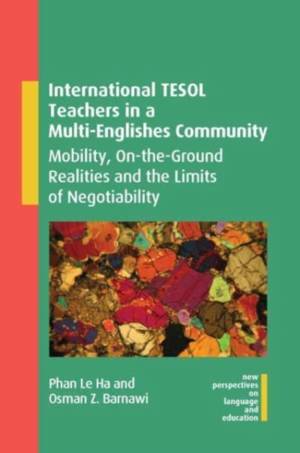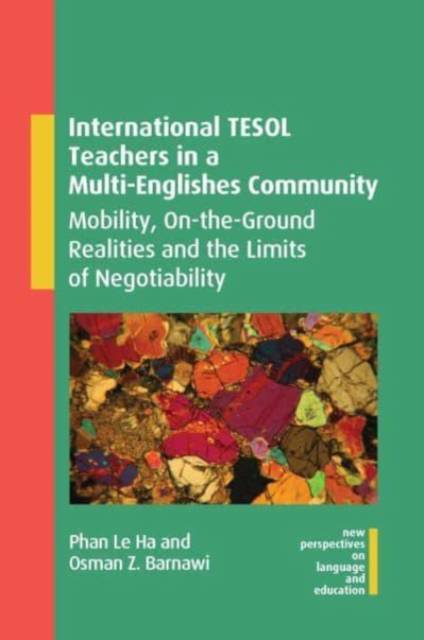
- Retrait gratuit dans votre magasin Club
- 7.000.000 titres dans notre catalogue
- Payer en toute sécurité
- Toujours un magasin près de chez vous
- Retrait gratuit dans votre magasin Club
- 7.000.000 titres dans notre catalogue
- Payer en toute sécurité
- Toujours un magasin près de chez vous
International TESOL Teachers in a Multi-Englishes Community
Mobility, On-The-Ground Realities and the Limits of Negotiability
Phan Le Ha, Osman Z BarnawiDescription
This book embarks on an ever-expanding array of language, academic mobility, neoliberalism, and accompanying rich scholarly debates. It examines the ways in which international English language teachers in Saudi Arabia's higher education system position themselves, negotiate, interact, adjust, make sense of their classroom dynamics, and validate their senses of selves and pedagogies in their day-to-day (dis)engagement with their institutions and encounters at work. Informed by rich empirical data from a multi-year, multi-site project in addition to other qualitative studies, the book reveals on-the-ground complexities involving speaker status, language, ethnicity, nationality, race, religion, sociocultural factors, emotion labour, work dynamic and professionalism. It promotes thinking beyond normative ideologies on marginalisation, the native and non-native speaker dichotomy, linguistic, racial, religious and ethnic (inter)relations, and translanguaging pedagogies, while also offering new material for original theorisation in multi-Englishes multilingualism, local-trusting-local and the limits of negotiability.
Spécifications
Parties prenantes
- Auteur(s) :
- Editeur:
Contenu
- Nombre de pages :
- 248
- Langue:
- Anglais
- Collection :
- Tome:
- n° 108
Caractéristiques
- EAN:
- 9781800415478
- Date de parution :
- 16-06-22
- Format:
- Livre relié
- Format numérique:
- Genaaid
- Dimensions :
- 156 mm x 234 mm
- Poids :
- 521 g







